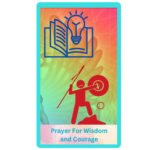Fortune cookie messages often contain nuggets of practical wisdom, encouraging us to adopt habits that can improve our lives. Today's message, “A short pencil is usually better than a long memory any day,” emphasizes the importance of writing things down rather than relying solely on memory. This article explores the benefits of note-taking, the limitations of memory, and strategies for effective written documentation in both personal and professional contexts.
The Limitations of Human Memory: Understanding Why Relying Solely on Memory Can Be Problematic
Human memory, while remarkable, has significant limitations. Understanding these limitations highlights the necessity of writing things down.
The Fallibility of Memory: Memory is subject to errors and distortions. Factors such as stress, fatigue, and time can affect our ability to recall information accurately. Writing things down ensures that details are preserved without reliance on potentially faulty memory.
The Challenge of Overload: In our information-rich world, we are constantly bombarded with new information. Relying solely on memory to manage this influx can lead to cognitive overload and increased likelihood of forgetting important details.
The Influence of Emotions on Memory: Emotions can distort our memories, making certain details more prominent while causing others to fade. Writing things down provides an objective record that is not influenced by emotional states.
The Benefits of Writing Things Down: How a Short Pencil Can Enhance Productivity and Reduce Stress
Writing things down offers numerous benefits that can enhance productivity and reduce stress in our daily lives.
Enhanced Clarity and Focus: Writing down tasks, ideas, and goals helps to clarify and organize our thoughts. This clarity can improve focus and make it easier to prioritize and manage tasks effectively.
Reduced Stress and Anxiety: Keeping written records can reduce stress and anxiety by alleviating the mental burden of trying to remember everything. Knowing that important information is documented allows us to focus on the task at hand without fear of forgetting crucial details.
Improved Task Management: Written lists and schedules can improve task management by providing a clear roadmap for what needs to be done. This can increase efficiency and productivity, making it easier to meet deadlines and achieve goals.
The Practicality of Note-Taking: How Recording Information Can Improve Personal and Professional Efficiency
Note-taking is a practical tool that can enhance both personal and professional efficiency. Here are some ways it can be applied effectively.
Personal Organization: Writing down appointments, to-do lists, and personal goals helps keep our personal lives organized. This can lead to better time management and a greater sense of control over our daily activities.
Professional Efficiency: In a professional context, taking notes during meetings, documenting processes, and keeping track of deadlines are essential for maintaining efficiency and accountability. Written records provide a reference that can be revisited as needed.
Creative Brainstorming: Writing down ideas during brainstorming sessions can capture creative thoughts that might otherwise be forgotten. This practice encourages innovation and ensures that valuable ideas are not lost.
Techniques for Effective Note-Taking: Strategies for Maximizing the Benefits of Written Documentation
Effective note-taking requires specific techniques to maximize its benefits. Here are some strategies to help you get the most out of your written documentation.
Using Bullet Points and Lists: Organizing information into bullet points and lists can make notes more concise and easier to read. This format highlights key points and ensures that important details are not overlooked.
Incorporating Visual Elements: Adding diagrams, charts, and other visual elements to your notes can enhance understanding and retention. Visual aids can make complex information more accessible and memorable.
Developing a Consistent System: Establishing a consistent note-taking system, such as using specific symbols or abbreviations, can streamline the process and make your notes more organized and efficient.
Regularly Reviewing and Updating Notes: Periodically reviewing and updating your notes can reinforce memory and ensure that information remains relevant and accurate. This practice helps to keep your notes up-to-date and useful.
The Power of Written Goals: How Writing Down Your Goals Can Lead to Greater Success and Achievement
Writing down goals is a powerful practice that can significantly enhance your ability to achieve them.
Clarifying Intentions and Priorities: Writing down goals helps to clarify your intentions and prioritize what is most important. This clarity can guide your actions and decisions, making it easier to stay focused and motivated.
Creating a Sense of Accountability: Documenting your goals creates a sense of accountability. By writing them down, you make a commitment to yourself, increasing the likelihood that you will take the necessary steps to achieve them.
Tracking Progress and Celebrating Successes: Written goals provide a reference point for tracking progress. Regularly reviewing your goals and noting achievements can boost motivation and provide a sense of accomplishment.
Real-Life Applications: How Successful Individuals and Organizations Use Writing to Enhance Performance
Successful individuals and organizations often rely on written documentation to enhance performance and achieve their objectives. Here are some examples.
Benjamin Franklin's Daily Schedule: Benjamin Franklin, one of America’s founding fathers, was known for his meticulous daily schedule. He documented his goals and activities, which helped him manage his time effectively and achieve significant accomplishments.
The Bullet Journal Method: The Bullet Journal is a popular note-taking and organization system that combines task management, goal setting, and creative expression. Many people use this method to stay organized and productive in both personal and professional contexts.
Corporate Meeting Minutes: In the corporate world, meeting minutes are essential for documenting discussions, decisions, and action items. Written records ensure that all participants have a clear understanding of the meeting outcomes and responsibilities.
Overcoming Common Barriers to Writing Things Down: Addressing Challenges and Finding Solutions
Despite its benefits, writing things down can sometimes be challenging. Here are some common barriers and strategies to overcome them.
Lack of Time: Many people feel they don't have enough time to write things down. However, taking a few minutes to jot down important information can save time in the long run by preventing forgetfulness and disorganization.
Perfectionism: Some individuals may avoid writing things down because they feel their notes need to be perfect. Embracing a more relaxed approach and focusing on the utility of notes rather than their appearance can help overcome this barrier.
Disorganization: If notes are scattered and disorganized, they can become less useful. Implementing a consistent note-taking system and using tools such as notebooks, planners, or digital apps can help keep notes organized and accessible.
Resistance to Change: Some people may resist writing things down because they are accustomed to relying on memory. Understanding the benefits of written documentation and gradually incorporating note-taking into daily routines can help ease this transition.
Embracing Technology: How Digital Tools Can Enhance Note-Taking and Information Management
Technology offers numerous tools that can enhance note-taking and information management. Here are some ways to leverage digital solutions.
Digital Note-Taking Apps: Apps such as Evernote, OneNote, and Google Keep allow users to take notes digitally, organize them into categories, and access them from multiple devices. These apps often include features such as search functionality, collaboration, and integration with other tools.
Cloud Storage and Collaboration: Cloud storage solutions like Google Drive and Dropbox enable users to store and share notes securely. This facilitates collaboration and ensures that notes are accessible from anywhere with an internet connection.
Voice Recognition and Dictation: Voice recognition technology allows users to dictate notes, which can be particularly useful for capturing ideas quickly. Tools like Google Docs' voice typing feature and Apple's Siri can transcribe spoken words into written text.
Digital Planners and Calendars: Digital planners and calendars can help manage schedules and tasks efficiently. Tools like Microsoft Outlook and Google Calendar offer features for setting reminders, scheduling events, and organizing tasks.
In Conclusion
The fortune cookie message, “A short pencil is usually better than a long memory any day,” serves as a valuable reminder of the importance of writing things down. By embracing the practice of note-taking, we can enhance our clarity, reduce stress, improve task management, and increase our chances of achieving our goals.
As we navigate the complexities of modern life, let us harness the power of the written word to stay organized and productive. Whether using traditional pen and paper or digital tools, writing things down can provide a reliable and effective means of managing information and responsibilities. By adopting this simple yet powerful habit, we can create a more structured, efficient, and fulfilling life, where important details are preserved, and goals are within reach.






